
"Revenues from 'one million barrels of oil per day' go entirely to 'five or six princes'."
-- Cable from the U.S. Embassy in Riyadh, Saudi Arabia
A secret 1996 cable -- sent from the U.S. Embassy in Riyadh, Saudi Arabia and released by Wikileaks -- offers a detailed account of the mechanisms of wealth distribution and waste within Saudi Arabia's royal family. Despite the considerable riches doled out to "thousands" of Saudi princes and princesses, the cable observes that Saudi royals "seem more adept at squandering than accumulating wealth." (The embassy notes that the country has more commoner billionaires than royal billionaires.) As reported in the cable, corruption also abounds largely unchecked.
Oil revenue is said primarily to enrich the Al Saud. The embassy explains that Saudi Arabia's Ministry of Finance distributes a portion of the country's oil proceeds to each Saudi royal family member in the form of monthly stipends. At the time the secret cable was issued, every royal reportedly received a monthly allowance from birth, on a sliding pay scale of US$ 800 (for distant royals) to US$ 270,000 (for sons and daughters of King Abd Al-Aziz). The embassy calculated these stipends to total more than US$ 2 billion of the Saudi government's US$ 40 billion annual budget. For this and other reasons, the embassy concludes that "getting a grip on royal family excesses is at the top" of priorities for Saudi Arabia.
In addition to the state-budgeted stipend, the cable reports, a royal may obtain a bonus of as much as US$ 3 million, as reward for getting married or building a palace. The existing stipend-and-bonus system provides Saudi royals with a significant incentive to procreate, particularly since stipend distributions begin at birth. It was stated that the central life aspiration of one Saudi prince was to have more children, so as to increase his monthly allowance.
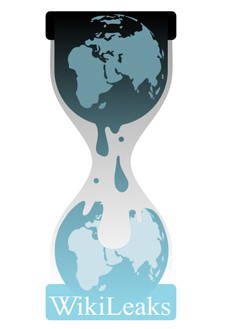
This is a "WikiLeaks News Update", a daily news update of stories that are obviously related to WikiLeaks and also freedom of information, transparency, cybersecurity, and freedom of expression. All the times are GMT.
10:50 PM WikiLeaks releases continue to receive significant coverage in Taiwan.
Newspaper United Daily News reports: "The leaked AIT (American Institute in Taiwan) cables are like a magnifying glass in which politicians' abilities to enchant their voters has been removed and hence, the leaked information has set a time-bomb for next year's presidential and legislative elections".
09:00 PM According to a U.S. Embassy cable from October 2006, three bomb explosions may have been orchestrated by the Government of Ethiopia in an attempt to justify its crackdown on Oromo political activists:
"The National Intelligence and Security Service (NISS) said that the intended terror plot had failed and the bombs had mistakenly gone off while the suspects were preparing them while hiding out at an illegally built house. Two of the suspects died immediately, while another died on the way to the hospital. One other is in critical condition. The police task force reported having others in custody related to the plot and that evidence shows the terrorists had ties to Oromo groups (…)", the cable reads.
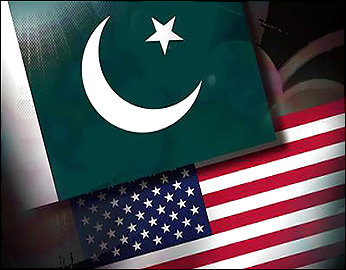 The Dawn Media Group in partnership with WikiLeaks has been releasing the "Pakistan Papers." Thus far, some of the revelations include the following: US was concerned that Pakistan would oppose its policies at the United Nations; US was worried Pakistan would purchase oil from Iran, allowing them to get a foothold in Pakistan; Pakistan's government was upset with US funding for the Pakistan military, which led to increased civil-military tensions; Pakistan's military asked for continued drone coverage; the US has had troops deployed on Pakistan soil; Saudi Arabia and the UAE have been financing jihadist groups in Pakistan and the US did not provide Benazir Bhutto with proper security.
The Dawn Media Group in partnership with WikiLeaks has been releasing the "Pakistan Papers." Thus far, some of the revelations include the following: US was concerned that Pakistan would oppose its policies at the United Nations; US was worried Pakistan would purchase oil from Iran, allowing them to get a foothold in Pakistan; Pakistan's government was upset with US funding for the Pakistan military, which led to increased civil-military tensions; Pakistan's military asked for continued drone coverage; the US has had troops deployed on Pakistan soil; Saudi Arabia and the UAE have been financing jihadist groups in Pakistan and the US did not provide Benazir Bhutto with proper security.
For this episode of "This Week in WikiLeaks," the show has part two of an interview that was done with Raza Rumi, a writer based in Lahore, Pakistan. Rumi regularly writes for the Pakistani weekly The Friday Times, The News and Daily DAWN on myriad topics such as history, arts, literature and society. Rumi has worked in Pakistan and abroad in various organizations including multilateral institutions such as the United Nations.
Rumi's writing can be read here.
[*Note: This is the second part of "This Week in WikiLeaks" for the week. You'll find part one, an interview with Kevin Zeese of the Bradley Manning Support Network on the one year anniversary of Manning's arrest here.]
To hear the show, click play on this embedded player.
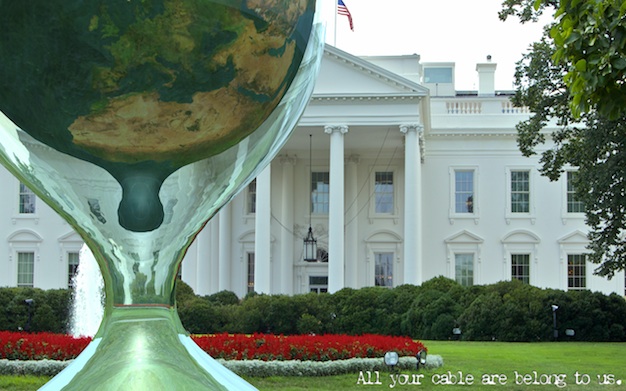 Next: US view of Nigeria's most influential persons
Next: US view of Nigeria's most influential persons
 Authored by Saudiwoman
Authored by Saudiwoman
Remember, in a former post, when I said that Saudis were captivated and shocked by what happened in Tunis and Egypt but hadn’t collectively made up their mind about it? Well it appears that they have. Everywhere I go and everything I read points to a revolution in our own country in the foreseeable future. However we are still on the ledge and haven’t jumped yet.
A little more than two months ago, as in some previous cases, Greg Mitchell started live-blogging when a major story broke. But a funny thing happened with WikiLeaks’ “Cablegate” release: The story, and the reader interest, did not go away after a couple of days—as the cables kept coming out, the controversies spread, and Julian Assange became a household name in America.
 Saudi Arabian Mufti Sheikh Yusof al-Ahmad warned that Saudi Arabia could also face a revolution unless steps are taken to fight widespread unemployment and poverty. He criticized government spending as wasteful and called for supervision over public spending. In particular, he criticized a recent USD 29.8 billion spent on King Abdullah University. The unemployment rate in Saudi Arabia is 10.5% (official) or as much as 20% (unofficial) and parliament recently announced that 22% of the population live below the poverty line.
Saudi Arabian Mufti Sheikh Yusof al-Ahmad warned that Saudi Arabia could also face a revolution unless steps are taken to fight widespread unemployment and poverty. He criticized government spending as wasteful and called for supervision over public spending. In particular, he criticized a recent USD 29.8 billion spent on King Abdullah University. The unemployment rate in Saudi Arabia is 10.5% (official) or as much as 20% (unofficial) and parliament recently announced that 22% of the population live below the poverty line.
WL Central has already reported one Saudi Arabian protest in an article on February 2 and another reported on February 13 along with a protest scheduled for February 18.
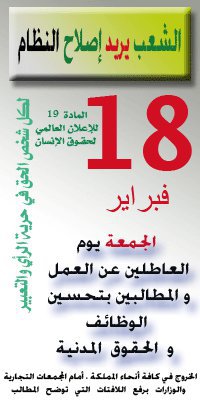 On February 2, WL Central asked Will Saudi Arabia protest? and showed a video with Saudi Arabians doing just that, despite all protests and public assemblies being illegal in Saudi Arabia. Now another video has surfaced (below) along with a facebook page calling for a protest day on February 18th for "those who are unemployed, who demand better work conditions and better civil rights." The facebook page is calling for:
On February 2, WL Central asked Will Saudi Arabia protest? and showed a video with Saudi Arabians doing just that, despite all protests and public assemblies being illegal in Saudi Arabia. Now another video has surfaced (below) along with a facebook page calling for a protest day on February 18th for "those who are unemployed, who demand better work conditions and better civil rights." The facebook page is calling for:
- automobile factories to be opened in every major area and industrial training for young people.
- open factories and provide better training in the world of technology, programming and maintenance
- electrical plants in each region
- electric appliance factories to be opened.
- video game factories (like Playstation) to be opened in every area.
- food and dessert factories to be open in every region and jobs allocated for women.
 The Telegraph: No 10 urged commander to play down Afghanistan failures
The Telegraph: No 10 urged commander to play down Afghanistan failures
"A senior adviser to Gordon Brown put pressure on the commander of Nato forces in Afghanistan to play down the “bleak and deteriorating” situation to reduce criticism of his government, leaked documents disclose."
The Guardian: Saudi Arabia cannot pump enough oil to keep a lid on prices
"US diplomat convinced by Saudi expert that reserves of world's biggest oil exporter have been overstated by nearly 40%.
The US fears that Saudi Arabia, the world's largest crude oil exporter, may not have enough reserves to prevent oil prices escalating, confidential cables from its embassy in Riyadh show."
El País: EE UU, preocupado por la corrupción oficial en Argentina (The United States worry about the official corruption in Argentina)
"El fenómeno de la corrupción oficial en Argentina preocupa a Estados Unidos, cuya embajada en Buenos Aires envió al Departamento de Estado más de cien despachos confidenciales, a lo largo de varios años, alertando sobre la fragilidad del sistema judicial en el país sudamericano y, consecuentemente, sobre la impunidad de quienes delinquen. (The phenomenon of the official corruption in Argentina worries the United States, whose embassy in Buenos Aires sent to the State Department more than a hundred confidential cables, through several years, warning about the fragility of the judicial system in the South American country and, consequently, about the impunity of those who break the law.)"
Map via @Houeida Anouar
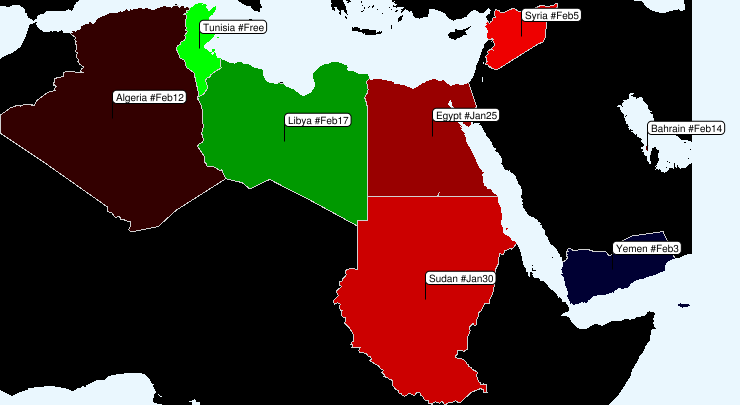
Tunisia December 15:
2011-02-01 Tunisian Islamic Leader Returns as EU Freezes Ousted President's Assets
2011-01-27 Tunisia protests continue as a warrant is issued for Ben Ali
2011-01-24 Tunisia today: "It’s not a unity government, it’s a fake unity government”
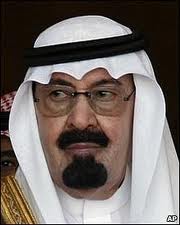 King Abdullah of Saudi Arabia, who has provided a new home for ex-Tunisian president Ben Ali, has been calling Egyptian protesters "infiltrators" who seek to destabilize their country, the state-run Saudi Press Agency reported.
King Abdullah of Saudi Arabia, who has provided a new home for ex-Tunisian president Ben Ali, has been calling Egyptian protesters "infiltrators" who seek to destabilize their country, the state-run Saudi Press Agency reported.
Saudi King Abdullah called Egyptian President Hosni Mubarak and "was reassured". "During the call, the king said, 'Egypt is a country of Arabism and Islam. No Arab and Muslim human being can bear that some infiltrators, in the name of freedom of expression, have infiltrated into the brotherly people of Egypt, to destabilize its security and stability and they have been exploited to spew out their hatred in destruction, intimidation, burning, looting and inciting a malicious sedition.'".
Saudi Arabia "strongly condemns" the protest. Whether Saudi Arabia is itself at risk of revolution or mass protests remains to be seen. On November 13, the Saudi Arabian government declared that facebook had "crossed a line" and restricted access to their approximately 27 million people for a few hours, on morality grounds. It would be unlikely that the Saudi government would tolerate mass protest organizing on social media. But there was reportedly a recent protest below, a very rare event, that may be either an anomaly or a precedent.
US State cable 2009-02-23: 09CAIRO326 describes a February 17, 2009 meeting between US Senator Joseph Lieberman and Egyptian President Gamal Mubarak.
Gamal criticizes the Israeli government's decision not to move forward on the Gaza ceasefire without the release of Corporal Shalit. "The various Palestinian factions are due to begin reconciliation talks in Cairo "in about 10 days" and this development will make those discussions more difficult. It makes Egypt look bad, and strengthens Hamas."
Gamal discusses a split within Arab ranks between "moderates" (Egypt and Saudi Arabia) and "radicals" (Syria and Qatar). He is of the opinion that Iran has skillfully exploited the lack of movement towards peace. The best way to thwart Iranian ambitions in the region, according to Gamal, is to reinvigorate the Israeli-Palestinian peace process and create a unified
Palestinian government. "The Palestinians need elections, both residential and parliamentary."
"The lesson from what's happening in Tunisia is that (Arab leaders) won't be able to hide any more behind the Islamist threat argument."
-Amel Boubekeur
If Tunisians are protesting for freedom, not religion, what role did Wikileaks and online social networks play in mobilizing Arab populations to throw off the shackles of authoritarian, repressive, and corrupt regimes? Are our western institutions responsible for the waves of protest threatening to drown capitals in the Middle East?.
The Saudi Arabia Ministry of Culture and Information has adopted regulation for internet publishing, including electronic newspapers, forums, and blogs. aitnews.com outlines the regulations in an article.
Besides the electronic press, forums and blogging, the thirteen forms of internet publishing include websites, electronic ads, mobile phone or other broadcasts, email groups, electronic archives, room dialogues, and "any form of electronic publishing the ministry wishes to add".
There are ten terms required to obtain a license, including good conduct and behaviour.
The Guardian: US embassy cables leak sparks global diplomacy crisis
"The United States was catapulted into a worldwide diplomatic crisis today, with the leaking to the Guardian and other international media of more than 250,000 classified cables from its embassies, many sent as recently as February this year.
At the start of a series of daily extracts from the US embassy cables - many of which are designated "secret" – the Guardian can disclose that Arab leaders are privately urging an air strike on Iran and that US officials have been instructed to spy on the UN's leadership.
These two revelations alone would be likely to reverberate around the world. But the secret dispatches which were obtained by WikiLeaks, the whistlebowers' website, also reveal Washington's evaluation of many other highly sensitive international issues."
Read more
Further coverage from The Guardian:
Diplomats ordered to spy on UN leaders
Saudis repeatedly urge attack on Iran
How 250,000 US embassy cables were leaked
Siprnet: America's secret information database
Explore the US embassy cables database
The job of the media is not to protect power from embarrassment
The Guardian's Simon Jenkins writes: "Perhaps we can now see how catastrophe unfolds when there is time to avert it, rather than having to await a Chilcot report after the event. If that is not in the public's interest, I fail to see what is.
Clearly, it is for governments, not journalists, to protect public secrets. Were there some overriding national jeopardy in revealing them, greater restraint might be in order. There is no such overriding jeopardy, except from the policies themselves as revealed. Where it is doing the right thing, a great power should be robust against embarrassment."
El País: Los secretos de la diplomacia de Estados Unidos, al descubierto
"EL PAÍS, en colaboración con otros diarios de Europa y Estados Unidos, revela a partir de hoy el contenido de la mayor filtración de documentos secretos a la que jamás se haya tenido acceso en toda la historia. Se trata de una colección de más de 250.000 mensajes del Departamento de Estado de Estados Unidos, obtenidos por la página digital WikiLeaks, en los que se descubren episodios inéditos ocurridos en los puntos más conflictivos del mundo, así como otros muchos sucesos y datos de gran relevancia que desnudan por completo la política exterior norteamericana, sacan a la luz sus mecanismos y sus fuentes, dejan en evidencia sus debilidades y obsesiones, y en conjunto facilitan la comprensión por parte de los ciudadanos de las circunstancias en las que se desarrolla el lado oscuro de las relaciones internacionales."
Read more
Further coverage from El País:
Washington ordena espiar en la ONU
Los árabes piden a EE UU frenar a Irán por cualquier medio
EE UU vigila de cerca la agenda islamista de Erdogan
WikiLeaks, información transparente contra el secretismo
"La seguridad de las fuentes, fundamental"
Directo: Las repercusiones de la filtración de papeles
Der Spiegel - English coverage
"Such surprises from the annals of US diplomacy will dominate the headlines in the coming days when the New York Times, London's Guardian, Paris' Le Monde, Madrid's El Pais and SPIEGEL begin shedding light on the treasure trove of secret documents from the State Department. Included are 243,270 diplomatic cables filed by US embassies to the State Department and 8,017 directives that the State Department sent to its diplomatic outposts around the world. In the coming days, the participating media will show in a series of investigative stories how America seeks to steer the world. The development is no less than a political meltdown for American foreign policy.
Never before in history has a superpower lost control of such vast amounts of such sensitive information -- data that can help paint a picture of the foundation upon which US foreign policy is built. Never before has the trust America's partners have in the country been as badly shaken. Now, their own personal views and policy recommendations have been made public -- as have America's true views of them."
Further English coverage from Der Spiegel:
Section front: WikiLeaks Diplomatic Cables
What Do the Diplomatic Cables Really Tell Us?
'Tribune of Anatolia': Diplomatic Cables Reveal US Doubts about Turkey's Government
The Germany Dispatches: Internal Source Kept US Informed of Merkel Coalition Negotiations
Foreign Policy Meltdown: Leaked Cables Reveal True US Worldview
Orders from Clinton: US Diplomats Told to Spy on Other Countries at United Nations
The US Diplomatic Leaks: A Superpower's View of the World
Der Spiegel: Geheimdepeschen enthüllen Weltsicht der USA
"Es ist ein Desaster für die US-Diplomatie. WikiLeaks hat mehr als 250.000 Dokumente aus dem Washingtoner Außenministerium zugespielt bekommen, interne Botschaftsberichte aus aller Welt. Sie enthüllen, wie die Supermacht die Welt wirklich sieht - und ihren globalen Einfluss wahren will.[...]
Solche Überraschungen aus den Annalen der US-Diplomatie werden in den nächsten Tagen die Schlagzeilen beherrschen, denn von diesem Montag an beginnen die "New York Times", der Londoner "Guardian", der Pariser "Monde", das Madrider "País" und DER SPIEGEL damit, den geheimen Datenschatz des Außenministeriums ans Licht zu holen. Aus einem Fundus von 243.270 diplomatischen Depeschen, die Amerikas Botschaften an die Zentrale sendeten, und 8017 Direktiven, welche das State Departement an seine Botschaften in aller Welt verschickte, versuchen die beteiligten Medien in einer Serie von Enthüllungsgeschichten nachzuzeichnen, wie Amerika die Welt lenken möchte."
Read more
Further coverage from Der Spiegel:
US-Depeschen über Deutschland: Skepsis gegenüber Schwarz-Gelb
US-Depeschen über die Türkei: Furcht vor islamistischen Tendenzen unter Erdogan
US-Depeschen über Iran: USA paktieren mit Arabern
US-Depeschen über die Uno: Außenministerium lässt Diplomaten ausspähen
Themenseite: Alles zu den Botschaftsdepeschen
Le Monde: Les révélations de WikiLeaks sur les coulisses de la diplomatie américaine
"Les cinq journaux vont publier, à partir du 28 novembre, des dizaines d'articles sur les coulisses de la diplomatie américaine, ainsi que des pays avec lesquels les Etats-Unis sont en contact. Les thèmes sont avant tout diplomatiques et politiques. Les relations des Etats-Unis avec l'Europe, la Russie, la Chine et les pays du Moyen-Orient sont longuement évoquées. L'Afghanistan et l'Irak, les deux pays où l'Amérique est en guerre, sont très présents. Le terrorisme et la prolifération nucléaire sont des sujets permanents. Le Monde publiera des dossiers spéciaux sur la France.
De même que l'on ne découvrira pas le nom de l'assassin du président Kennedy dans les archives du département d'Etat, ce n'est pas en lisant ces télégrammes qu'on connaîtra les plus protégés des secrets d'Etat. Mais aucun sujet d'intérêt politique, du plus sérieux au plus futile, n'est absent de ces câbles qui, selon le degré d'information et le talent du diplomate, dresse un passionnant état des lieux de la planète, scrutée par des regards américains."
Read more
Further coverage from Le Monde:
Pourquoi "Le Monde" publie les documents WikiLeaks
Observer le régime iranien et ses méthodes d'intimidation
Iran : comment les Israéliens ont poussé Washington à la fermeté
La peur des pays arabes face à l'Iran
Espionnage : les ordres de Washington aux diplomates américains
Manning, un militaire à l'origine des plus grandes " fuites " de l'histoire
The New York Times: State's Secrets: Cables Shine Light Into Secret Diplomatic Channels
"A cache of a quarter-million confidential American diplomatic cables, most of them from the past three years, provides an unprecedented look at backroom bargaining by embassies around the world, brutally candid views of foreign leaders and frank assessments of nuclear and terrorist threats.
Some of the cables, made available to The New York Times and several other news organizations, were written as recently as late February, revealing the Obama administration’s exchanges over crises and conflicts. The material was originally obtained by WikiLeaks, an organization devoted to revealing secret documents. WikiLeaks intends to make the archive public on its Web site in batches, beginning Sunday.
The anticipated disclosure of the cables is already sending shudders through the diplomatic establishment, and could conceivably strain relations with some countries, influencing international affairs in ways that are impossible to predict."
Read more
Further coverage from the New York Times:
Documents: selected dispatches
Around the world, distress over Iran
Mixing diplomacy with spying
Iran is fortified with North Korean aid
A note to readers: the decision to publish diplomatic documents
Theme by Danetsoft and Danang Probo Sayekti inspired by Maksimer